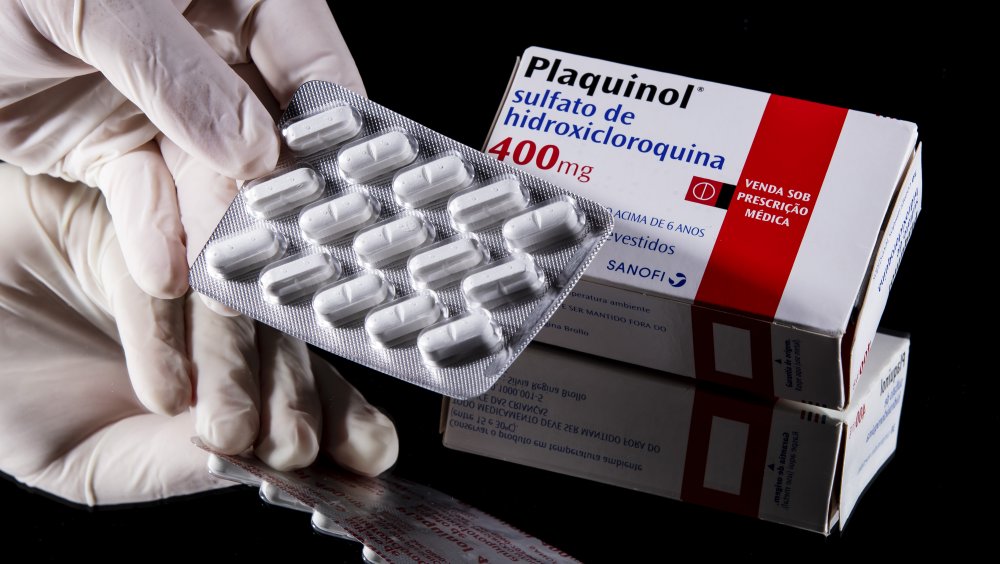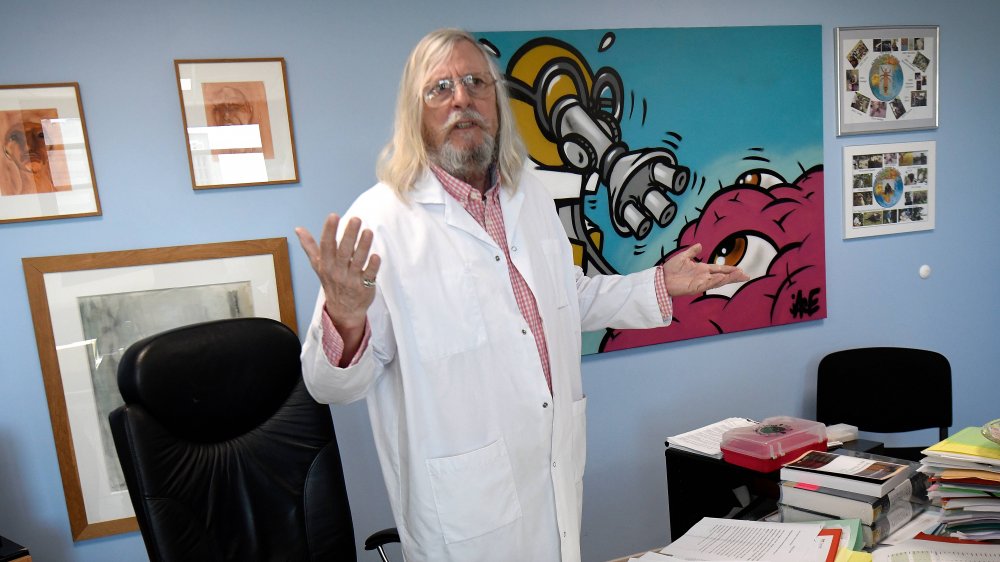What Is Hydroxychloroquine And Why Is It Associated With The Pandemic?
In March 2020, an Arizona man died in an ill-fated attempt to become immune to COVID-19. The BBC explains that he and his wife consumed a fish tank cleaner called chloroquine phosphate after confusing it with a similar-sounding malaria medication: chloroquine. Per the Food and Drug Administration, chloroquine and a related drug, hydroxychloroquine, are administered to prevent malaria. Hydroxychloroquine is also FDA-approved to treat autoimmune disorders such as lupus as well as rheumatoid arthritis.
To reiterate, hydroxychloroquine and chloroquine are not the same as chloroquine phosphate, which is a cleaning agent that's not meant for medical use or consumption. However, you might wonder why that tragic mishap happened at all: the truth is, the couple took notice of chloroquine after President Donald Trump endorsed it during televised briefings. The wife told NBC, "We saw his press conference. It was on a lot, actually. Trump kept saying it was basically pretty much a cure."
Now to be clear about this. Trump did not tell this couple to drink chloroquine phosphate. However, he spent extensive amounts of time promoting chloroquine and hydroxychloroquine as promising coronavirus treatments. Where did that idea come from?
The difference between testing and results
Medical professionals in multiple countries have looked at chloroquine and hydroxychloroquine as a way to treat COVID-19. Per the Journal of the American Medical Association, a small, nonrandomized trial in France yielded positive results, but in the absence of randomized, double-blind trials, such findings are "meaningless," via the Guardian. In other words, the results are only useful if the doctor doesn't handpick which patient receives the medicine, and neither the doctor nor the patient knows who received the hydroxychloroquine.
Despite scant empirical support, the FDA approved using hydroxychloroquine to treat hospital patients suffering from COVID-19. Demand for hydroxychloroquine skyrocketed, possibly compromising the ability of lupus patients to fill prescriptions. Part of the surge was spurred by Donald Trump publicly praising the drug. In March, he even tweeted, "HYDROXYCHLOROQUINE & [the antibiotic] AZITHROMYCIN, taken together, have a real chance to be one of the biggest game changers in the history of medicine." However, President Not-A-Doctor's optimism proved premature.
On April 23, 2020, the University of Minnesota reported that "the two primary outcomes" of administering hydroxychloroquine (or hydroxychloroquine and azithromycin) to COVID-19 patients "were death and the need for mechanical ventilation." In fact, patients who received hydroxychloroquine died significantly more often than those who received none, and the drug didn't make a difference in ventilation. According to the Guardian, Brazilian researchers had to discontinue a chloroquine study because high doses of the drug killed six out of 40 COVID-19 patients.

